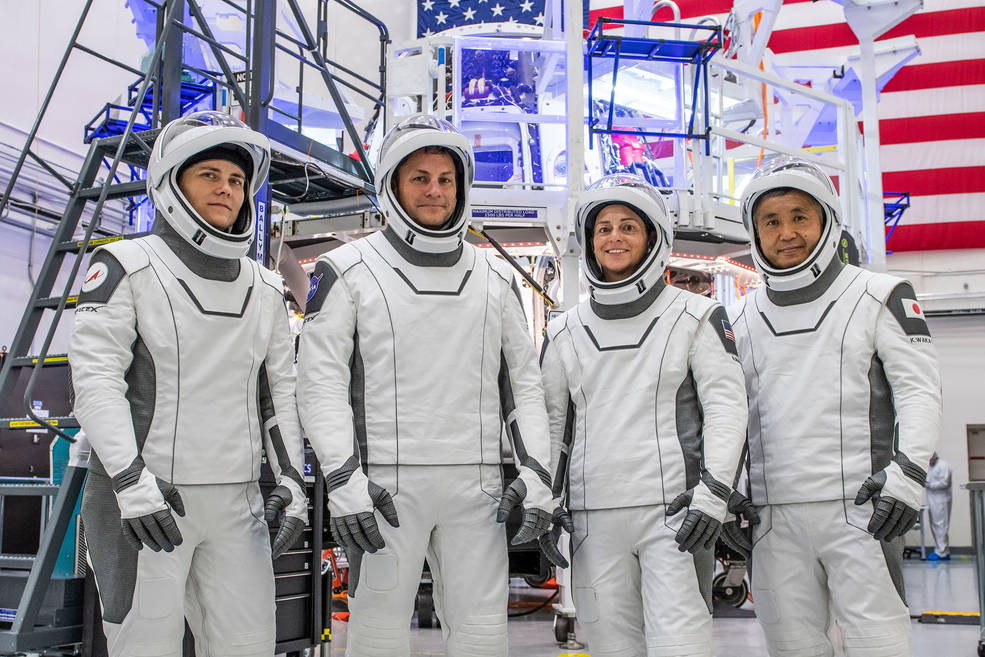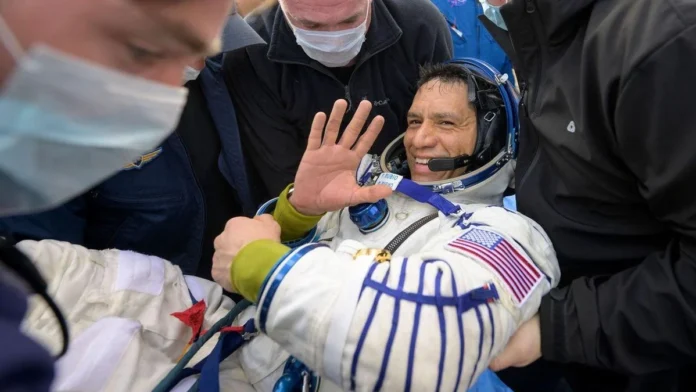Returning from a successful mission, the latest NASA crew shared insights and reflections on their time in space, detailing their research, challenges, and highlights of the journey. However, amidst the celebration of their return and mission accomplishments, the team noticeably avoided discussion surrounding a medical issue experienced post-flight. This omission has sparked curiosity, with many wondering about the health and well-being of the astronauts after an intense period in the International Space Station (ISS).
A Stellar Mission with Notable Achievements
The mission, which spanned several months aboard the ISS, was packed with objectives that pushed the boundaries of space science and research. The crew worked tirelessly to conduct a series of experiments aimed at advancing human knowledge of biology, material sciences, and planetary studies. These investigations are essential, contributing valuable insights that help pave the way for NASA’s longer-term ambitions, such as returning humans to the Moon and even reaching Mars.
During a press briefing, NASA astronauts described their scientific work with passion, emphasizing the value of their research to understanding the effects of microgravity on human physiology and other biological organisms. The team conducted experiments on everything from bone density and muscle degradation to plant growth, as well as tested new materials that could support future space missions.
Additionally, they discussed the technological advancements and space station maintenance tasks they had completed, all of which are critical for the continuous operation of the ISS and its future projects.

Navigating Space Hazards and Overcoming Obstacles
Space missions present numerous challenges, both mentally and physically. The crew recounted how they adapted to microgravity, maintained their physical fitness, and managed their daily routines within a confined, weightless environment. The team spoke about their preparation and commitment to fitness, which includes regular exercise designed to mitigate the muscle loss and bone density reduction that typically occurs in a zero-gravity environment.
They also highlighted the importance of mental resilience. “Staying focused, motivated, and keeping a positive spirit, even when faced with isolation from family and friends, is essential,” one astronaut explained. Living aboard the ISS for months, they relied on a strict schedule of tasks and recreation to maintain mental health. Regular communication with family members and colleagues on Earth also played a vital role in sustaining morale.
The Post-Flight Medical Issue: An Unspoken Concern?
Despite the camaraderie and mission success, one aspect that loomed over the press conference was the crew’s evasion of a reported medical issue that surfaced after the return to Earth. NASA has traditionally been transparent about the effects of space travel on astronaut health, regularly releasing studies that track the long-term effects of microgravity on the body. Yet, in this instance, both the crew and NASA representatives declined to elaborate on this specific issue.
Questions about the astronauts’ health post-flight have fueled speculation. Space travel can strain the body in various ways, from causing alterations in blood flow and eyesight to affecting balance and orientation. Extended stays in space can also impact immune system function, leading to conditions that may not fully manifest until after the astronauts’ return to Earth.
NASA officials assured the public that the crew’s health is their top priority, and that any information about health complications will be handled with transparency. They stated that the agency will follow its usual protocol of evaluating and monitoring each crew member’s physical condition and releasing findings that could benefit future space missions.
Why NASA May Be Tight-Lipped?
There are several potential reasons for NASA’s reluctance to discuss the health issue in detail. Privacy considerations are one factor, as medical issues can be sensitive and subject to confidentiality. Additionally, post-flight health effects can be complex and not fully understood in the immediate aftermath. It’s possible that NASA is still evaluating the medical condition and prefers to wait until they have a comprehensive understanding before making any statements.
Moreover, the agency might want to avoid causing alarm until it has determined whether the issue is directly related to the space mission or a separate, unrelated health occurrence. NASA has assured that the astronauts are under careful observation and receiving all necessary medical attention to ensure their swift recovery.

The Long-Term Implications of Space Travel on Health
Space missions involve known health risks, and NASA has been actively researching these effects for decades. One of the most significant concerns is the impact of microgravity on the cardiovascular system. When astronauts are in a weightless environment, blood flows differently, sometimes causing fluid shifts that can lead to vision problems or even cardiovascular changes. Space travel also affects bone density, with astronauts losing an average of 1-2% of bone mass per month while in space.
Moreover, NASA has been investigating the psychological impacts of long-duration space missions. From sleep disruptions to isolation effects, the agency aims to prepare astronauts for the demands of missions that may one day take them to Mars — missions that could last two years or more.
Additionally, the body’s immune response is known to change in space, raising concerns about susceptibility to infections or other health issues that may surface upon returning to Earth. Given these risks, NASA’s careful monitoring and immediate medical intervention are critical to ensuring astronauts’ health after their missions.
What Lies Ahead for NASA and Future Space Missions?
NASA’s ongoing research into space health is part of a broader goal to prepare humanity for deep-space exploration. The agency has ambitious plans for both lunar missions under the Artemis program and potential Mars expeditions. The knowledge gained from each ISS mission brings us closer to overcoming the challenges that future explorers will face.
NASA’s commitment to transparency, even if partial, reflects its dedication to ensuring that space exploration remains as safe as possible for astronauts. The health protocols they are developing today will become the foundation for the next generation of explorers who may one day live and work on the Moon or Mars.

A Bold Future with Caution
As the NASA crew recovers and undergoes routine health checks, their mission’s success serves as a reminder of the vast potential of human exploration. The post-flight medical issue may have cast a slight shadow, but the mission has otherwise set a promising course for future discoveries. Each mission builds on the last, providing essential data to ensure that astronauts can explore space as safely as possible.
In the years to come, space agencies will continue to refine health protocols, improve technology, and expand our understanding of life in space. The journey of this NASA crew underscores both the challenges and rewards of space exploration, proving that while humanity’s future may lie in the stars, careful preparation and respect for the limits of human physiology are equally crucial.

